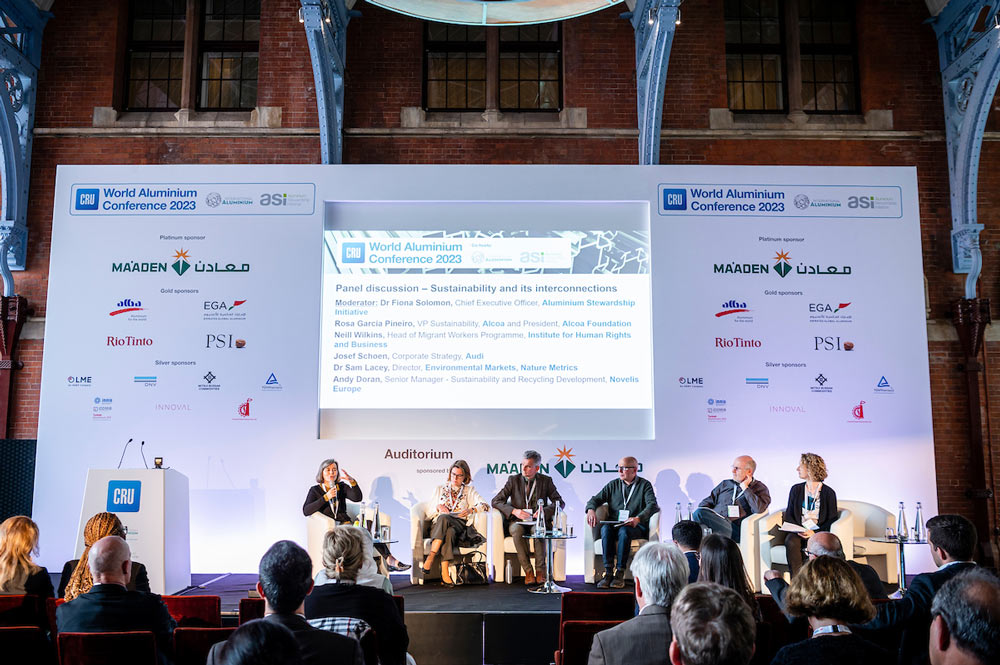Holistic action needed to address broader sustainability challenges in the aluminium sector
The aluminium industry must act urgently to curb rising emissions and achieve climate plus broader sustainability-related goals.
29 May 2023
The global aluminium industry faces a significant challenge in achieving the 1.5°C climate goal, as its total emissions continue to rise despite decreasing emissions intensity. With projections indicating an 80% growth in aluminium demand by 2050, the sector’s annual emissions of nearly 1.2 billion tonnes highlight the urgent need for action. However climate change should not be seen as the single dimension of the industry’s sustainability challenges.

The Sustainability and its interconnections – exploring interrelationships between sustainability priorities session, moderated by Dr Fiona Solomon, ASI CEO and featuring panellists Rosa Garcia Pineiro, VP Sustainability, Alcoa and President Alcoa Foundation; Neill Wilkins, Head of Migrant Workers Programme, Institute for Human Rights and Business; Josef Schoen, Corporate Strategy, Audi; Andy Doran, Senior Manager - Sustainability and Recycling Development, Novelis Europe; Dr Sam Lacey, Director, Nature Metrics. Photo credit: CRU World Aluminium Conference 2023
In a panel hosted by ASI CEO, Dr Fiona Solomon, speakers from across the aluminium value chain and civil society representatives discussed that to effectively address sustainability concerns, it is crucial to approach them holistically. The audience were urged to consider the interplay between climate resilience, circularity, human rights, and nature positive goals. This aligns with the priorities outlined in the ASI Strategy, emphasizing the need for comprehensive efforts throughout the industry.
In particular, the path to circularity in the aluminium industry requires collaboration among all stakeholders. Achieving this goal is not solely the responsibility of individual companies; it must be integrated from product design through production, use, and recycling, adhering to principles of material stewardship. It must consider all material flows currently treated as wastes and consider product lifecycles beyond just recycling.
Recognizing that 2030 is fast approaching, pragmatic steps are necessary to meet global targets for climate and nature. Embracing digitization can play a vital role in enabling progress, but it is important to note that data availability alone is insufficient. Action is key, and while the availability of harmonized and comparable data serves as a foundation for measuring progress, the ultimate outcome lies in taking tangible steps towards reducing impacts.
As the aluminium industry grapples with the escalating sustainability challenges, rapid progress and action is essential. Collaboration, innovative solutions, and a commitment to sustainability goals will be instrumental in taking the sector down a more sustainable path.
SHARE THIS ARTICLE


